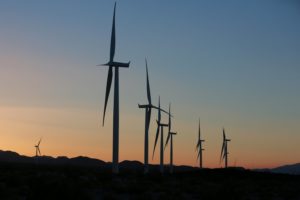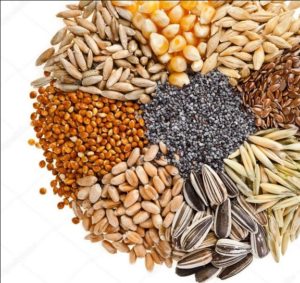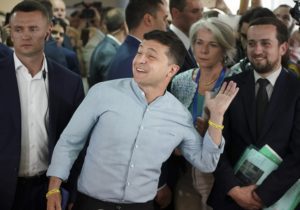
INTEGRITES acted as local counsel to EuroCape Ukraine, an indirect subsidiary of LongWing Energy, a Luxemburg-based independent power producer operating renewable assets in Europe, in connection with the financing of the first 98 MW phase of a 500 MW wind farm in Zaporizhia region, Ukraine.
The first phase of the project build-out is financed by a mixture of debt and equity. The Overseas Private Investment Corporation (OPIC) is providing US$150 mln in long-term financing. The remaining project costs are financed by LongWing S.C.A, VLC Renewables and GE Capital’s Energy Financial Services. GE Renewable Energy will also supply the turbines for the 98 MW.
The first phase of the project is under construction and shall enter operation in the first quarter of 2020. The subsequent phases are intended to be finished in the course of 2020. The wind park when fully constructed is expected to reduce carbon emissions by more than 4.86 tons per year and provide 780,000 of households in Ukraine with electricity.
INTEGRITES was retained by the sponsors as local counsel on overall aspects of financing, construction, regulatory, corporate and other development matters related to the project. In particular, the advice included structuring, advice on capital and exchange controls, review of the project and finance documentation as well as complex advice on the FiT regime, the PPA and the grid connection agreement.
«We are delighted to see that this pioneering and large-scale wind energy project has successfully achieved the financial close. Above all, this project will have a positive social and environmental impact for the region and we are proud to have contributed to promoting the sustainable development of Ukraine”, – comments Igor Krasovskiy, partner and project lead at INTEGRITES.
«I am very proud to see INTEGRITES helping to implement the second wind farm project financing in Ukraine after the Syvash deal, closed by our team a few months earlier this year. I am sure that reaching financing for the remaining 402 MW will be as successful as this deal», – said Dr. Oleksiy Feliv, Managing Partner at INTEGRITES.
INTEGRITES team included, among others, Managing Partner Dr. Oleksiy Feliv (Energy and Real Estate), partners Igor Krasovskiy (Finance/Projects), Illya Tkachuk (M&A and Corporate), Viktoriya Fomenko (Tax and Customs law), counsels Serhii Uvarov and Gennadii Roschepii, senior associates Olena Savchuk, Inna Kostrytska and Yuriy Korchev, associates Oleh Kotliar and Victoriia Shvydchenko.
About Longwing
LONGWING ENERGY SCA is a European IPP platform which acquires, constructs and long-term operates onshore wind and solar parks in Europe. LongWing Energy owns a pipeline of operating and development wind park projects of approx. 900 MW located in France, Poland and Ukraine. The company has a growth strategy targeting additional markets.
About INTEGRITES
INTEGRITES is a full-service law firm with headquarter in Ukraine. Particularly focused on renewables, the firm represents the biggest international clients with a cumulative commitment to 2 GW of wind and 500 MW solar power projects in Ukraine which ensures the firm’s leading position on the regional market. For more information visit www.integrites.com
DEVELOPMENT, INTEGRITES, LONGWING ENERGY, WIND FARM, ZAPORIZHIA

Ukraine as of July 22 had fully used quotas for duty-free exports of agricultural products to the EU on nine groups of goods, including honey, sugar, cereals and flour, processed starch, processed tomatoes, grape and apple juice, wheat, corn, and butter. According to a press release from the Ukrainian Agribusiness Club (UAC), the pace of quota use and revival of trade with the EU is noticeably accelerating, as on the same date last year seven quotas for duty-free exports from Ukraine to the EU were used.
“Potentially, quotas for barley (79% are now used), poultry (75%), malt and wheat gluten (58%), and starch (53%) will be used by the end of the year,” the association noted.
The UAC said additional quotas for eight groups of goods come in force from October 2017 for a period of three years: for honey, flour and cereals, processed tomatoes, grape and apple juice, oats, corn, wheat, and barley. As of July 22, five of the additional quotas were used: for honey, cereals, juice, wheat, and corn.
AGRI PRODUCTS, APPLE JUICE, CEREALS, CORN, DUTY-FREE EXPORTS, EU, GRAPE, HONEY, SUGAR, WHEAT

The new supply of offices in Lviv to be commissioned in 2019-2021 will be 176,100 square meters, which is almost comparable to the current offer, UTG consulting company (Kyiv) has told Interfax-Ukraine. “By mid-2019, the growing demand for office space, triggered mainly by favorable conditions for the development of the IT sector, led to a shortage of quality space in the market and, as a consequence, to a decrease in vacancy to 2.2%, an increase in rental rates and a surge in developer activity,” UTG analyst Oksana Havrylevych said.
According to her, office premises with a leased area of 56,400 square meters are expected to be commissioned in 2019 (33.6% of A class, 66.4% of B class), 31,500 square meters in 2020, and 88,200 square meters in 2021.
“With the timely commissioning of the declared facilities by the end of 2021, the total leased office space will be about 378,000 square meters, which corresponds to 500.8 square meters per 1,000 citizens, which may bring the Lviv office market to the phase of oversupply,” she said.
The volume of money transfers to Ukraine using international money transfer systems in January-June 2019 exceeded the amount of funds sent abroad by 6.5 times. According to the website of the National Bank of Ukraine (NBU), the share of transfers to Ukraine from the United States was 15%, from Israel 8%, from Russia 9%, from Italy 14%, from Poland 11%, from other countries (202 countries) some 43%.
In the first half of 2019, the volume of remittances using money transfer systems created by both residents and non-residents was as follows: to Ukraine some $1.099 billion in equivalent (23.23% of the total amount of transfers), outside Ukraine some $168 million in equivalent (3.54% of the total amount of transfers), within Ukraine some UAH 93.28 billion, or equivalent of $3.465 billion (73.23% of the total amount of transfers).
This data does not include information on transfers made through banks, card payment systems and post offices.
The volume of domestic transfers through money transfer systems in the first half of 2019 increased by 33.5% compared to the same period of 2018.
The predominant amount of domestic transfers (90%) is implemented by systems created by non-banking institutions.
Almost 68.2% of domestic transfers accounted for two systems of money transfers: Forpost (Post Finance LLC) and Mail Transfer (Poshtovy Perevod, Ukrposhta).

Some 130 of 199 member of parliament candidates who won majoritarian races in early parliamentary elections came ran on the Servant of the People ticket, Ukraine’s Central Election Commission (CEC) has said. Some 23 MPs, who won in majoritarian races, represent other parties, including Opposition Platform – For Life and Opposition Bloc – 6, Holos – , European Solidarity and Batkivschyna – two each, Svoboda, Samopomich, Bila Tserkva and United Center – one each.
Some 46 more MPs from majoritarian races were self-appointed and did represent any political party.
With 100% of electronic protocols processed, Servant of the People (43.16%), Opposition Platform – for Life (13.05%), Batkivschyna (8.18%), European Solidarity (8.10%) and Holos (5.82%) enter parliament. The remaining parties did not surpass the 5% barrier required for entry.
Servant of the People will receive 124 mandates according to the party list vote, followed by Opposition Bloc – For Life – 37, Batkivschyna – 24, European Solidarity -23 and Holos – 17.
The Servant of the People Party faction in the parliament of the 9th convocation will be represented by 254 MPs, Opposition Bloc – For Life – 43, Batkivschyna – 26, European Solidarity – 25, Holos – 20 and Opposition Bloc – 6. Svoboda, Samopomich, Bila Tserkov and United Center will be represented by one MP each, and there will be 46 self-appointed MPs.
Early parliamentary elections were held on Sunday, July 21 according to a mixed system: 225 candidates were elected by party lists in the state-wide multi-member constituency and 199 by the majority system (majoritarian) in single-member constituencies.
The current edition of the Constitution does not contain a requirement for the mandatory entry of a deputy to party’s Rada faction. Therefore, it is possible that in addition to factions of parties that overcame the 5% barrier, deputy groups will be created in the future parliament, which may include majoritarian deputies.
According to the law on elections of deputies of Ukraine, the CEC establishes the results of the elections of deputies in the national district and in single-member districts no later than the fifteenth day from the voting day (no later than August 5). Not later than on the fifth day (no later than August 10) from the day the election results are established, the CEC officially publishes the results in the newspapers Holos Ukrainy and Uriadovy Kurier (the list of elected deputies is published in alphabetical order).

U.S.-based Trident Acquisitions Corp. has been recognized the winner of the tender for the development of the Dolphin hydrocarbon section on the Black Sea shelf on the basis of a production sharing agreement (PSA), company CEO and one of its shareholders Ilya Ponomarev has said. “It was a difficult struggle, but our application was significantly more profitable for Ukraine,” he said on Facebook.
Ex-State Duma deputy Ponomarev, to whom Petro Poroshenko granted Ukrainian citizenship in May of this year, thanked the government and personally Minister of Energy and Coal Industry Ihor Nasalyk for the trust. “We promise not to let you down and to do everything possible to start production as soon as possible!” he said.
As reported, on April 12, 2019, the Cabinet of Ministers announced a tender for the development of hydrocarbons within the Dolphin section on the Black Sea shelf under PSA terms. The term of the agreement is 50 years.